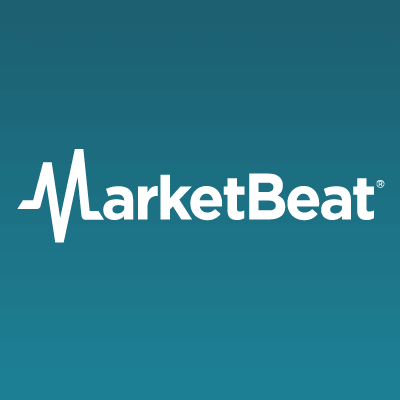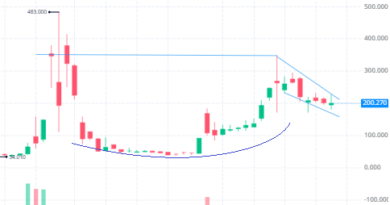Best Stocks Under $5.00 for 2021
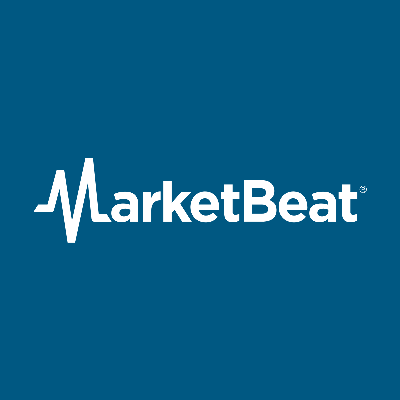
<![CDATA[document.write('→ Psychedelic Stock Goes Nuts as FDA Approval Inches Closer (Ad)’);]]><![CDATA[document.write('‘);]]>
When you think of those mythical, rags-to-riches stories of someone striking it big in the stock market, what you’re most likely thinking of is someone who scored it big with stocks under $5, which are also called penny stocks. Before getting involved in stocks under 5 dollars, there are a few important things to know.
Best Stocks Under $5 – What You Need to Know Before You Buy
Penny stocks don’t literally have to be priced at pennies, though some are just that. Penny stocks refer to stocks that generally trade under $5 a share.
Should I Buy Stocks Under $5?
A broader question might be, “Should I buy stocks?” The answer to both questions is the same: It depends. You should not buy stocks if you don’t have a discriminating sense of how to invest money, or if you don’t have guidance around the topic from someone who does.
With the right knowledge, stocks are an excellent investment, and according to some estimates, far more sound than real estate. Yes, stock prices do fluctuate (sometimes wildly), but over the last several decades, they have outperformed real estate in some regards.
Investors who know what they’re doing with stocks can make huge gains, build enormous wealth, and create exponential financial success. Stocks under $5, in particular, present an incredible opportunity to make huge gains.
It all comes down to research.
You never want to sink all of your investment cash into just one basket. Estimates vary on the exact percentage, but most experts agree that the majority of your portfolio should be invested in solid, stable companies. That said, stocks under $5 can be a good place to do a little value investing and give some growth to your cash.
It’s important to keep in mind that there are many trading strategies in relation to the stock market, and investing in undervalued, up-and-coming companies is only one strategy. For example, some investors prefer to focus on stocks that pay out dividends, where each share pays out dividend payments of company profit—and a large number of shares creates a solid cash flow. Other investors like to buy shares in specific industries, like tech stocks, or they may choose to ride the market as they engage in the ups and downs of day trading, flipping stocks for profit.
Whichever stock trading strategy you prefer, penny stocks can be some of the best growth stocks for their undervalued cost—if you trade the right way.
What Are Penny Stocks?
Stocks that trade under $5 per share are also called penny stocks. There are many cheap stocks to buy which can be had for under $5 per share, including dollar stocks, penny stocks, and stocks that sell for fractions of a penny.
While many penny stocks belong to startup companies in potentially risky market sectors, there are also plenty of established businesses trading on normal markets at under $5 per share. These publicly traded securities can certainly be viewed as a less risky proposition, due to their established company history. And if they trade on a regulated market, they have to make their accounting transparent, which eliminates a lot of investor risk.
But by-and-large, penny stocks are usually associated with smaller companies that are newer or undervalued, and not yet recognized by the market. There tend to be fewer shares of these stocks available, meaning wider spreads between bids and asking prices. The companies themselves tend to be considered speculative investments. All of this carries a certain element of risk.
That said, investing in these small cap companies can provide an opportunity to make huge gains. To someone who doesn’t know what they’re doing, penny stocks can be a total gamble. To someone who does know what they’re doing, penny stocks can provide some lucrative revenue growth.
What Are the Rewards of Stocks Under $5?
As mentioned, penny stocks present huge opportunities for growth. Take True Religion as an example—an apparel company based in Vancouver, Canada. This designer-jeans outfit was trading for $0.67 per share in July of 2004. Just nine years later, TowerBrook Capital Partners acquired the company and paid $32 for every share…a whopping 4676% profit.
Can you think of any “normal stocks” that offered investors the same gains? They’re few and far between (though they do exist). These are the types of profit margins that traders dream of earning.
Another advantage of penny stocks is that they can be an easy way for small-time investors to enter the market. You don’t necessarily have to sink everything into some sort of risky biotech company. There are plenty of brand-name companies that are trading at under $5. Purchasing shares of these recognized businesses could be your chance to enter the stock market in an affordable way—and cash out big if things work out.
It’s not just about price, but about volume: A $500 investment might only buy you 5-10 shares of a recognizable blue-chip stock or it could buy you 100+ shares of a stock priced at $5 and below. If that company grows and becomes a mid-cap stock, you’ll see a lot more profit than you would have by investing in a more “normal” stock.
For that very same reason, penny stocks may allow you to diversify your holdings to a greater extent, with less money (if you want to eschew mutual funds and pick stocks yourself). With just $100 in the market, you could buy ten shares of stock in ten different industries.
Some penny stocks are shares of companies outside the US. This can be your opportunity to dabble in international business and obtain some revenue from the global market—without having to worry about tariffs and exchange rates. Of course, in this case, you cannot just be a savvy investor; you have to be well abreast of the news and current events.
What Are the Risks of Stocks Under $5?
Many stocks under $5 are companies that may be startups or riskier business ventures. One of the biggest examples is biotech, an industry with larger startup costs and huge risks for investors. A startup company may discover the cure for cancer, in which case, you can cash out as a billionaire. Or, they may not, and they’ll take all your money with them when they fold.
Another disadvantage to stocks under $5 is that they may be stocks of a company that’s about to go bankrupt. They could be desperately selling shares of stock to raise money, or to help their executives bail out with a parachute built from your investment. Newly formed startups may also be on the verge of bankruptcy, and because of their lack of established history, no one may even know.
Occasionally penny stocks will be part of a “pump and dump” scam, where investors build excitement over a particular stock to drive up the price. They may “leak” information that a startup energy company struck crude oil gold or put forth an imaginative but enticing earnings estimate for the next quarter. As the stock value wildly climbs out of control (far beyond the actual value of the market cap), hoodwinked investors pour their dollars into the company. Then it crashes, and the only ones who benefit are the scammers who bought into the stock before they made it popular.
Another more prosaic risk of stocks under $5 is that they may just not go anywhere, hovering under $5 for years on end. While this is certainly better than losing all your money, it’s not so conducive to portfolio growth.
Yet another disadvantage to stocks under $5 is their low trading volume. They can be harder to unload if you need to, because you may not find a willing buyer. Moreover, many penny stocks of younger upstart companies will most likely not pay out dividends. You are only purchasing the stock to leverage a change in its price—or hoping that in the future they will play into your dividend investing strategy.
As you can see, there are some risks and volatility associated with stocks under $5. However, it once again all comes down to playing it smart and doing your research. There are plenty of resources which will tell you about the most volatile stocks, along with providing stats to gauge their future possibilities.
If you have a good head for what’s going on, you won’t fall for scams or pour all your money into a pipe dream. The best traders know which stocks to watch; they understand the ins and outs of dividend yield and market capitalization—and can leverage these stats into higher amounts of revenue. There’s no secret to what they’re doing. They’re actively learning and keeping their eyes on the best times to buy stocks at 52 week low points. They know when to hold their assets, and when to sell them.
How to Trade Stocks Under $5?
Some stocks under $5 are traded on the New York Stock Exchange and NASDAQ. However, most stocks under $5 trade through over the counter transactions (OTC). Everything about these OTC transactions is done electronically through the OTC Bulletin Board (OTCBB). Companies that are traded on the OTCBB must still meet requirements from the SEC and FINRA. However, these companies don’t meet the requirements for trading on a larger market.
There are still more stocks under $5 that don’t even meet the requirements to be traded on the OTCBB. These stocks can be found on a listing service called Pink Sheets (so named because the stocks were once listed on pink sheets of paper). These companies are too small to be listed on a national exchange, or may not wish to make their accounting statements public—which means they don’t have to file with the SEC, and can’t be listed on a publicly-traded market.
As you might expect, these Pink Sheet stocks can carry significant risks. They can be difficult to analyze because of the lack of transparency around their business; investors should use caution and due diligence when purchasing them.
What Are the Best Stocks Under $5?
Now that we’ve reviewed the pros and cons of stocks under $5 and explained how they work, let’s address the question that every investor wants to know: how do I actualize this information?
It can be hard to find good stocks under $5, even though the stock market has had an incredible bull-run since the Great Recession of 2008 and 2009. Stocks continue to hit new all-time highs, and the price-to-earnings ratios of most S&P 500 companies make purchasing shares look like an expensive proposition. Many investors are having trouble finding low-priced stocks that haven’t already appreciated greatly during the last decade. It’s hard to find a good deal on Wall Street right now when even small S&P 500 companies are trading at market caps above $1 billion.
Stocks have gotten expensive, both in terms of share price and their valuation relative to earnings. In more normal markets, a typical S&P 500 company has traded at about fifteen times their earnings. Most stocks are currently trading closer to 25 times their annual earnings. While the stock market has become more expensive as a whole, there are still a handful of undervalued stocks that are trading at less than $5.00 per share.
Stocks Under 5 Dollars
Value investing opportunities do exist—if you’re looking in the right places. Putting together a list of the best stocks under $5.00 requires investors to look at smaller and riskier companies in sectors that are either undiscovered or unrecognized by the market as a whole. When looking at cheap stocks to buy, some of them may not look especially attractive today, but long-term investors will recognize profit if they are willing to exercise patience and hold onto shares of these companies through multiple economic cycles.
Some of these companies are solid investing ideas because they are small. As a result, they’re considered too risky to attract the interest of most managed mutual funds and Wall Street money managers. Others operate in unrecognized or untested areas of the market. You may find even find crypto stocks, marijuana stocks, and bitcoin stocks on this list. Others have been beaten up by Mr. Market after a long period of slowing profits but are now actively trying to turn around their business and bounce back.
This low-priced list of stocks showcases a lot of different industries, but these picks all carry two common characteristics: They all have a super-low share price of $5.00 or less, and they all consistently receive “buy” and “strong buy” ratings from Wall Street’s top-rated research analysts.
<![CDATA[document.write('‘);]]>
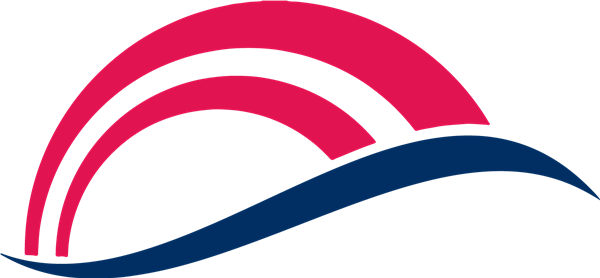
#1 – CymaBay Therapeutics
NASDAQ:CBAY
Stock Price: $4.47 (-$0.12)
PE Ratio: -4.76
Market Cap: $316.19 million
Average Trading Volume: 1.23 million shares
Consensus Rating: Buy (12 Buy Ratings, 0 Hold Ratings, 0 Sell Ratings)
Consensus Price Target: $12.77 (185.7% Upside)
CymaBay Therapeutics, Inc., a clinical-stage biopharmaceutical company, focuses on developing and providing therapies to treat liver and other chronic diseases. Its lead product candidate is seladelpar (MBX-8025), a selective agonist of peroxisome proliferator activated receptor delta, which has completed Phase II clinical study for the treatments of primary biliary cholangitis and sclerosing cholangitis, as well as patients with nonalcoholic steatohepatitis. The company also develops MBX-2982, a selective orally-active G protein-coupled receptor agonist that interacts with bioactive lipids known to stimulate glucose-dependent insulin secretion for the treatment of gut/liver disease. Its preclinical stage product candidate is CB-001, a G protein-coupled receptor for omega-3 fatty acids, such as docosahexaenoic acid for the treatment of gut/liver disease. It has development and licensing agreement with Janssen Pharmaceuticals, Inc. to develop and discover undisclosed metabolic disease target agonists for the treatment of type 2 diabetes and other disorders; and a license agreement with DiaTex, Inc. to develop and commercialize therapeutic products comprising halofenate and its enantiomers, derivatives, and analogs for the treatment of diseases. The company was formerly known as Metabolex, Inc. CymaBay Therapeutics, Inc. was incorporated in 1988 and is headquartered in Newark, California.
<![CDATA[document.write('Are Elon Musk and Tesla running out of lithium? A production slowdown says “yes.”’);]]> (Ad)
<![CDATA[document.write('Claim your free report now’);]]>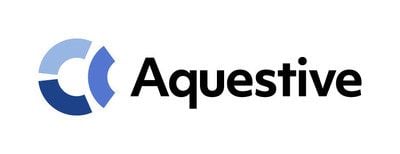
#2 – Aquestive Therapeutics
NASDAQ:AQST
Stock Price: $4.28 (-$0.21)
PE Ratio: -2.80
Market Cap: $150.95 million
Average Trading Volume: 950,949 shares
Consensus Rating: Buy (5 Buy Ratings, 0 Hold Ratings, 0 Sell Ratings)
Consensus Price Target: $15.67 (266.0% Upside)
Aquestive Therapeutics, Inc., a pharmaceutical company, focuses on identifying, developing, and commercializing various products to address unmet medical needs in the United States and internationally. The company markets Sympazan, an oral soluble film formulation of clobazam for the treatment of lennox-gastaut syndrome; Suboxone, a sublingual film formulation of buprenorphine and naloxone for the treatment of opioid dependence; and Zuplenz, an oral soluble film formulation of ondansetron for the treatment of nausea and vomiting associated with chemotherapy and post-operative recovery. The company’s proprietary product candidates comprise Libervant, a buccal soluble film formulation of diazepam for the treatment of seizures; and Exservan, an oral soluble film formulation of riluzole for the treatment of amyotrophic lateral sclerosis. Its proprietary pipeline of complex molecule products include AQST-108, a sublingual film formulation of epinephrine for the treatment of anaphylaxis; and AQST-305, a sublingual film formulation of octreotide for the treatment of acromegaly. Further, the company develops KYNMOBI, a sublingual film formulation of apomorphine for the treatment of episodic off-periods in Parkinson’s disease. Aquestive Therapeutics, Inc. was incorporated in 2004 and is headquartered in Warren, New Jersey.
#3 – PDS Biotechnology
NASDAQ:PDSB
Stock Price: $4.24 (-$0.21)
PE Ratio: -2.57
Market Cap: $99.07 million
Average Trading Volume: 1.75 million shares
Consensus Rating: Buy (5 Buy Ratings, 0 Hold Ratings, 0 Sell Ratings)
Consensus Price Target: $7.62 (79.7% Upside)
PDS Biotechnology Corporation, a clinical-stage biopharmaceutical company, focuses on developing multifunctional cancer immunotherapies. Its lead product candidate is PDS0101 (HPV16), which is in Phase II clinical trial, a first line treatment for the recurrent/metastatic head and neck cancer, human papillomavirus associated malignancies, and cervical cancer. The company is also developing various product candidates, which are in preclinical trials, including PDS0102 (TARP) for treating prostate and breast cancers; PDS0103 (MUC-1) for ovarian, colorectal, lung, and breast cancers; and PDS0104 (TRP2) for the treatment of melanoma. The company has a collaboration agreement with Merck & Co. to combine PDS0101 with Keytruda, a checkpoint inhibitor to treat human papillomavirus positive recurrent or metastatic head and neck cancer; and an agreement with Farmacore Biotechnology for the development of Versamune-based vaccine to prevent COVID-19 infection. The company is based in Princeton, New Jersey.
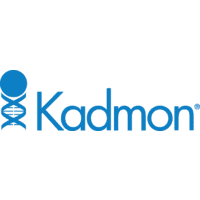
#4 – Kadmon
NASDAQ:KDMN
Stock Price: $3.90 (-$0.24)
PE Ratio: -6.50
Market Cap: $711.32 million
Average Trading Volume: 3.89 million shares
Consensus Rating: Buy (5 Buy Ratings, 0 Hold Ratings, 0 Sell Ratings)
Consensus Price Target: $12.75 (226.9% Upside)
Kadmon Holdings, Inc., a biopharmaceutical company, discovers, develops, and commercializes small molecules and biologics primarily for the treatment of inflammatory and fibrotic diseases. Its lead product candidates include KD025, an orally administered selective inhibitor of the rho-associated coiled-coil kinase 2, which is in Phase II clinical trial for the treatment of chronic graft-versus-host and fibrotic diseases; KD045, an oral inhibitor of ROCK for the treatment of fibrotic diseases; and KD033, an anti-PD-L1/IL-15 fusion protein for the treatment of cancer. The company also engages in developing Tesevatinib to treat autosomal dominant polycystic kidney disease; ribavirin, a nucleoside Inhibitor to treat hepatitis; and CLOVIQUE, a trientine hydrochloride capsules for the treatment of Wilson’s disease. Kadmon Holdings, Inc. has strategic collaborations and license agreements with Nano Terra, Inc. and Dyax Corp. The company was founded in 2010 and is headquartered in New York, New York.

#5 – Concert Pharmaceuticals
NASDAQ:CNCE
Stock Price: $4.87 (-$0.08)
PE Ratio: -1.89
Market Cap: $159.42 million
Average Trading Volume: 504,798 shares
Consensus Rating: Buy (5 Buy Ratings, 0 Hold Ratings, 0 Sell Ratings)
Consensus Price Target: $21.00 (331.2% Upside)
Concert Pharmaceuticals, Inc. operates as a clinical stage biopharmaceutical company. The company discovers and develops novel small molecule drugs for the treatment of autoimmune and central nervous system disorders. Its product candidates include CTP-543, which is in Phase III clinical trials for the treatment of alopecia areata; CTP-692, a selective deuterium-modified analog of the endogenous amino acid and D-serine that is in Phase II trials for the treatment of schizophrenia; and AVP-786, a combination of deudextromethorphan and an ultra-low dose of quinidine, which is in Phase 3 clinical trials for the treatment of neurologic and psychiatric disorders, including agitation associated with Alzheimer’s disease. The company has strategic collaborations with Avanir Pharmaceuticals, Inc.; Cipla Technologies; Processa Pharmaceuticals; and Jazz Pharmaceuticals, Inc. Concert Pharmaceuticals was founded in 2006 and is headquartered in Lexington, Massachusetts.
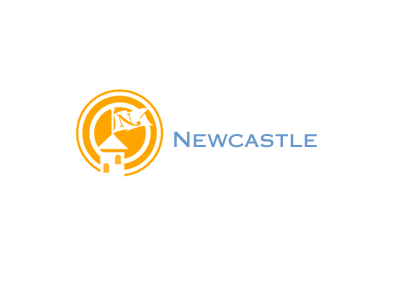
#6 – Drive Shack
NYSE:DS
Stock Price: $3.30 (+$0.19)
PE Ratio: -2.54
Market Cap: $209.24 million
Average Trading Volume: 3.59 million shares
Consensus Rating: Buy (5 Buy Ratings, 0 Hold Ratings, 0 Sell Ratings)
Consensus Price Target: $4.63 (40.2% Upside)
Drive Shack Inc. owns and operates golf-related leisure and entertainment venue business. It operates through Entertainment Golf Venues and Traditional Golf Properties segments. The Entertainment Golf Venues segment operates entertainment golf venues in Raleigh, North Carolina; Richmond, Virginia; and West Palm Beach, Florida. Its entertainment golf venues offer sports and social entertainment services with gaming and golf technology, a chef-inspired menu, and craft cocktails, as well as social events. The Traditional Golf Properties segment owns and operates golf properties in the United States. As of December 31, 2019, it owned, leased, or managed 59 properties in 9 states. Drive Shack Inc. also invests in loans and securities. The company was formerly known as Newcastle Investment Corp. and changed its name to Drive Shack Inc. in December 2016. Drive Shack Inc. was founded in 2002 and is headquartered in New York, New York.
<![CDATA[document.write('Stock to Keep an Eye On’);]]> (Ad)
Strong management, innovative products – this company won’t be under the radar for long
<![CDATA[document.write('Read more here’);]]>
#7 – Americas Silver
NYSEAMERICAN:USAS
Stock Price: $2.10 (-$0.05)
PE Ratio: -6.18
Market Cap: $280.97 million
Average Trading Volume: 1.39 million shares
Consensus Rating: Buy (6 Buy Ratings, 0 Hold Ratings, 0 Sell Ratings)
Consensus Price Target: $5.28 (151.4% Upside)
Americas Gold and Silver Corporation engages in the acquisition, evaluation, exploration, development, and operation of mineral properties. The company explores for silver, lead, zinc and copper. It principally owns 100% interests in the Cosalá Operations consisting of 67 mining concessions that cover approximately 19,385 hectares located in the state of Sinaloa, Mexico; and Galena Complex situated near the town of Wallace in the state of Idaho, the United States. The company was formerly known as Americas Silver Corporation and changed its name to Americas Gold and Silver Corporation in September 2019. Americas Gold and Silver Corporation was incorporated in 1998 and is headquartered in Toronto, Canada.

#8 – MannKind
NASDAQ:MNKD
Stock Price: $3.60 (-$0.13)
PE Ratio: -17.14
Market Cap: $923.14 million
Average Trading Volume: 6.22 million shares
Consensus Rating: Buy (5 Buy Ratings, 0 Hold Ratings, 0 Sell Ratings)
Consensus Price Target: $6.63 (84.0% Upside)
MannKind Corporation, a biopharmaceutical company, focuses on the development and commercialization of inhaled therapeutic products for endocrine and orphan lung diseases in the United States. The company offers Afrezza, an inhaled insulin used to improve glycemic control in adults with diabetes. It also promotes Thyquidity used for the treatment of hypothyroidism. The company has a license and collaboration agreement with United Therapeutics Corporation for the development and commercialization of a dry powder formulation of Treprostinil (Tyvaso DPI) used for the treatment of pulmonary arterial hypertension. MannKind Corporation was incorporated in 1991 and is headquartered in Westlake Village, California.
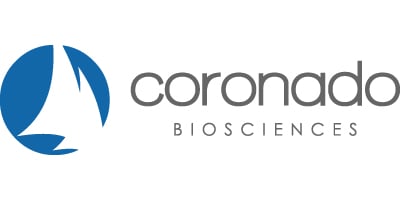
#9 – Fortress Biotech
NASDAQ:FBIO
Stock Price: $3.67 (-$0.04)
PE Ratio: -4.32
Market Cap: $347.64 million
Average Trading Volume: 956,123 shares
Consensus Rating: Buy (5 Buy Ratings, 0 Hold Ratings, 0 Sell Ratings)
Consensus Price Target: $10.55 (187.5% Upside)
Fortress Biotech, Inc. develops and commercializes pharmaceutical and biotechnology products. The company markets dermatology products, such as Targadox for acne; Exelderm cream for ringworm and jock itch symptoms; Ceracade for dry skin conditions; Luxamend for dressing and managing wounds; Ximino to treat inflammatory lesions of severe acne vulgaris. It also develops MB-107, a gene therapy for X-linked severe combined immunodeficiency; CAEL-101, a Phase Ia/Ib trial product that reduces amyloid deposits in the tissues and organs; MB-102, a chimeric antigen receptor engineered T-cell (CAR T) program for acute myeloid leukemia; MB-106, a CAR T program for B cell non-Hodgkin lymphoma; and CS1 CAR T for multiple myeloma and light chain amyloidosis. In addition, the company develops MB-101 for Glioblastoma multiform (GBM); MB-103 for GBM, and breast cancer and brain metastases; MB 108 for GBM; MB-105 for prostate and pancreatic cancers; intravenous Tramadol for post-operative pain; CK-101 that is in Phase I/II clinical trial for treating patients with EGFR mutation-positive non-small cell lung cancer; Cosibelimab for metastatic cancer; Triplex, a Phase I study recombinant modified vaccinia ankara viral vector vaccine; ConVax, a recombinant modified vaccinia ankara viral vector vaccine; CEVA-101 for traumatic brain injury; CEVA-D, a bioreactor device that enhances the anti-inflammatory potency of bone marrow-derived cells; AVTS-001, an adeno-associated virus gene therapy; CUTX-101, a copper histidinate injection for the treatment of Menkes disease; CK-103 for metastatic solid tumor cancers; CK-302 for oncology indications; and CK-303 to treat renal cell carcinoma. It has collaboration arrangements with universities, research institutes, and pharmaceutical companies. The company was formerly known as Coronado Biosciences, Inc. and changed its name to Fortress Biotech, Inc. in April 2015. Fortress Biotech, Inc. was founded in 2006 and is based in New York, New York.

#10 – Cidara Therapeutics
NASDAQ:CDTX
Stock Price: $2.29 (-$0.07)
PE Ratio: -1.32
Market Cap: $113.38 million
Average Trading Volume: 933,392 shares
Consensus Rating: Buy (5 Buy Ratings, 0 Hold Ratings, 0 Sell Ratings)
Consensus Price Target: $7.20 (214.4% Upside)
Cidara Therapeutics, Inc., a biotechnology company, focuses on the discovery, development, and commercialization of novel anti-infectives for the treatment of diseases in the United States. The company’s lead product candidate is rezafungin acetate, a novel molecule in the echinocandin class of antifungals for the treatment and prevention of serious invasive fungal infections, including candidemia and invasive candidiasis, which are fungal infections associated with high mortality rates. It also advances its Cloudbreak platform to develop antiviral Fc-conjugates for the prevention and treatment of influenza and other viral infections, such as RSV, HIV, and Coronavirus. The company was formerly known as K2 Therapeutics, Inc. and changed its name to Cidara Therapeutics, Inc. in July 2014. Cidara Therapeutics, Inc. was founded in 2012 and is headquartered in San Diego, California.
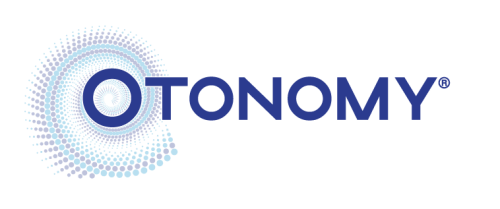
#11 – Otonomy
NASDAQ:OTIC
Stock Price: $2.64 (+$0.03)
PE Ratio: -1.98
Market Cap: $126.11 million
Average Trading Volume: 1.19 million shares
Consensus Rating: Buy (4 Buy Ratings, 0 Hold Ratings, 0 Sell Ratings)
Consensus Price Target: $8.10 (206.8% Upside)
Otonomy, Inc., a biopharmaceutical company, develops therapeutics for neurotology in the United States. The company offers OTIPRIO, a ciprofloxacin otic suspension for use during tympanostomy tube placement surgery in pediatric patients. It also develops OTIVIDEX, a sustained-exposure formulation of the steroid dexamethasone that has completed Phase III clinical trial for the treatment of Ménière’s disease; OTO-313, a sustained-exposure formulation of N-methyl-D-aspartate receptor antagonist gacyclidine, which has completed Phase I/II clinical trial to treat tinnitus; and OTO-413, a sustained-exposure formulation of brain-derived neurotrophic factor that is in Phase I/II clinical trial for the repair of cochlear synaptopathy and the treatment of speech-in-noise hearing difficulties. In addition, the company develops OTO-510, an otoprotectant for the prevention of cisplatin-induced hearing loss; OTO-825, a gene therapy for the treatment of congenital hearing loss; and OTO-6XX induces hair cell repair and regeneration for the treatment of severe hearing loss. The company has license agreements with University of California and DURECT Corporation; and strategic collaboration with Applied Genetic Technologies Corporation to develop and commercialize gene therapy for congenital hearing loss. Otonomy, Inc. was incorporated in 2008 and is headquartered in San Diego, California.
<![CDATA[document.write('Stock to Keep an Eye On’);]]> (Ad)
Strong management, innovative products – this company won’t be under the radar for long
<![CDATA[document.write('Read more here’);]]>
#12 – Motus GI
NASDAQ:MOTS
Stock Price: $1.26 (-$0.02)
PE Ratio: -1.77
Market Cap: $41.27 million
Average Trading Volume: 4.03 million shares
Consensus Rating: Buy (5 Buy Ratings, 0 Hold Ratings, 0 Sell Ratings)
Consensus Price Target: $2.40 (90.5% Upside)
Motus GI Holdings, Inc., a medical technology company, provides endoscopy solutions that enhance clinical outcomes and the cost-efficiency associated with the diagnosis and management of gastrointestinal conditions in the United States and Israel. Its flagship product is the Pure-Vu system, a medical device to facilitate the cleaning of a poorly prepared colon during the colonoscopy procedure. The company is based in Fort Lauderdale, Florida.

#13 – CohBar
NASDAQ:CWBR
Stock Price: $1.37
PE Ratio: -4.03
Market Cap: $79.41 million
Average Trading Volume: 744,004 shares
Consensus Rating: Buy (5 Buy Ratings, 0 Hold Ratings, 0 Sell Ratings)
Consensus Price Target: $5.38 (292.3% Upside)
CohBar, Inc., a clinical stage biotechnology company, engages in the research and development of mitochondria based therapeutics (MBTs) for the treatment of chronic and age-related diseases. The company develops MBTs to treat non-alcoholic steatohepatitis (NASH), obesity, fatty liver disease, idiopathic pulmonary fibrosis, type 2 diabetes mellitus, cancer, atherosclerosis, cardiovascular, and neurodegenerative diseases, such as Alzheimer’s disease. Its lead MBT candidate is CB4211, a novel refined analog of the MOTS-c mitochondrial-derived peptide, which is in Phase Ib stage of a Phase Ia/Ib clinical trial for the treatment of nonalcoholic steatohepatitis (NASH) and obesity. The company’s preclinical programs include CB5138 analogs for fibrotic diseases, CB5064 analogs for COVID-19 associated ARDS, MBT5 analogs for CXCR4-related cancer and orphan diseases, and MBT3 analogs for cancer immunotherapy. The company was founded in 2007 and is headquartered in Menlo Park, California.

#14 – 9 Meters Biopharma
NASDAQ:NMTR
Stock Price: $1.39 (-$0.05)
Market Cap: $216.47 million
Average Trading Volume: 11.17 million shares
Consensus Rating: Buy (7 Buy Ratings, 0 Hold Ratings, 0 Sell Ratings)
Consensus Price Target: $5.00 (259.7% Upside)
9 Meters Biopharma, Inc., a clinical-stage biotechnology company, focuses on patients with rare disorders and unmet needs. The company’s pipeline includes drug candidates for short bowel syndrome (SBS) and celiac disease. It is developing NM-002, a long-acting injectable GLP-1 agonist that is in a Phase 2 clinical trial for SBS; and Larazotide, a Phase 3-stage therapeutic in development for celiac disease. The company also develops NM-003, a proprietary long-acting GLP-2 agonist; and NM-004, a double-cleaved mesalamine with an immunomodulator for developing rare and/or orphan indications. 9 Meters Biopharma, Inc. is based in Raleigh, North Carolina.

#15 – Geron
NASDAQ:GERN
Stock Price: $1.59 (-$0.04)
PE Ratio: -4.53
Market Cap: $516.02 million
Average Trading Volume: 4.09 million shares
Consensus Rating: Buy (6 Buy Ratings, 0 Hold Ratings, 0 Sell Ratings)
Consensus Price Target: $4.00 (152.4% Upside)
Geron Corporation, a late-stage clinical biopharmaceutical company, focuses on the development and commercialization of therapeutics for hematologic myeloid malignancies. It holds rights to imetelstat, a telomerase inhibitor in Phase 2/3 clinical trials, which inhibits the uncontrolled proliferation of malignant progenitor cells in hematologic myeloid malignancies to reduce dysfunctional blood cell production and enable recovery of normal blood cell production. The company was founded in 1990 and is headquartered in Menlo Park, California.

#16 – Daré Bioscience
NASDAQ:DARE
Stock Price: $1.75 (-$0.05)
PE Ratio: -1.94
Market Cap: $74.87 million
Average Trading Volume: 3.28 million shares
Consensus Rating: Buy (6 Buy Ratings, 0 Hold Ratings, 0 Sell Ratings)
Consensus Price Target: $5.42 (209.5% Upside)
Daré Bioscience, Inc., a clinical-stage biopharmaceutical company, focuses on developing and marketing products for women’s health in the United States. The company intends to develop therapies in the areas of contraception, fertility, and sexual and vaginal health. Its products in advanced clinical development include DARE-BV1, a bioadhesive hydrogel formulated with clindamycin phosphate 2% to treat bacterial vaginosis in a single application that completed Phase 3 clinical trials; Ovaprene, a hormone-free, monthly vaginal contraceptive; and Sildenafil Cream, a cream formulation of sildenafil for topical administration to the vulva and vagina for treatment of female sexual arousal disorder. The company’s Phase 1-ready products are DARE-HRT1, a combination of bio-identical estradiol and progesterone intravaginal ring for the treatment of vasomotor symptoms in hormone replacement therapy; DARE-VVA1, a vaginally delivered formulation of tamoxifen to treat vulvar vaginal atrophy in patients with hormone-receptor positive breast cancer; and DARE-FRT1, an intravaginal ring containing bio-identical progesterone for the prevention of preterm birth and broader luteal phase support as part of an in vitro fertilization treatment plan. Its products in pre-clinical stage include DARE-LARC1, a combination product designed to provide reversible contraception; ORB-204 and ORB-214 injectable formulations of etonogestrel to provide contraception over 6-month and 12-month periods; and DARE-RH1, a non-hormonal contraception for men and women. The company is based in San Diego, California.
<![CDATA[document.write('Are Elon Musk and Tesla running out of lithium? A production slowdown says “yes.”’);]]> (Ad)
<![CDATA[document.write('Claim your free report now’);]]>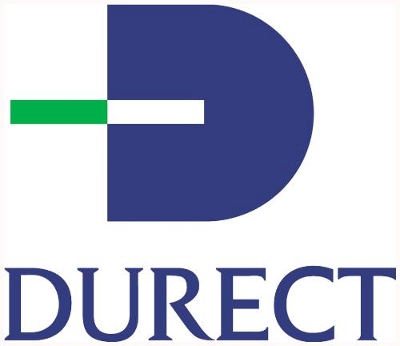
#17 – DURECT
NASDAQ:DRRX
Stock Price: $1.94 (-$0.08)
PE Ratio: -38.79
Market Cap: $458.95 million
Average Trading Volume: 2.39 million shares
Consensus Rating: Buy (6 Buy Ratings, 0 Hold Ratings, 0 Sell Ratings)
Consensus Price Target: $6.60 (240.2% Upside)
DURECT Corporation, a biopharmaceutical company, researches and develops medicines based on its epigenetic regulator and pharmaceutical programs. The company offers ALZET product line that consists of osmotic pumps and accessories used for experimental research in mice, rats, and other laboratory animals; and a range of biodegradable polymers for pharmaceutical and medical device clients for use as raw materials in their products under the LACTEL brand. Its product pipeline consists of multiple investigational drug candidates in development, such as DUR-928, an endogenous, orally bioavailable small molecule that is in Phase I and II development stage to play a regulatory role in lipid homeostasis, inflammation, and cell survival. The company’s oral and injectable delivery technologies are designed to enable new indications and enhanced attributes for small-molecule and biologic drugs, including POSIMIR, an investigational analgesic product intended to deliver bupivacaine to provide up to 3 days of pain relief after surgery. DURECT Corporation markets and sells its ALZET and LACTEL product lines through direct sales force in the United States, as well as through a network of distributors in Japan, Europe, and internationally. The company has strategic collaboration and other agreements with Virginia Commonwealth University Intellectual Property Foundation; Indivior UK Ltd.; Santen Pharmaceutical Co., Ltd.; Sandoz AG; Gilead Sciences, Inc; and Zogenix, Inc. DURECT Corporation was founded in 1998 and is headquartered in Cupertino, California.
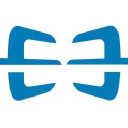
#18 – Entasis Therapeutics
NASDAQ:ETTX
Stock Price: $2.02 (-$0.06)
PE Ratio: -0.60
Market Cap: $73.79 million
Average Trading Volume: 390,633 shares
Consensus Rating: Buy (8 Buy Ratings, 0 Hold Ratings, 0 Sell Ratings)
Consensus Price Target: $6.71 (232.4% Upside)
Entasis Therapeutics Holdings, Inc. operates as a clinical stage biopharmaceutical company. It focuses on the discovery and development of novel antibacterial products for serious drug-resistant bacterial infections. Its anti-infective discovery platform has produced a pipeline of differentiated programs, which is bacterial infections, including ETX2514SUL (targeting Acinetobacter baumannii infections), ETX0282CPDP (targeting Enterobacteriaceae infections), Non-Beta-lactam PBP inhibitor, and Zoliflodacin. The company was founded in May 2015 and is headquartered in Waltham, MA.
#19 – Agile Therapeutics
NASDAQ:AGRX
Stock Price: $2.04
PE Ratio: -4.08
Market Cap: $178.76 million
Average Trading Volume: 1.66 million shares
Consensus Rating: Buy (5 Buy Ratings, 0 Hold Ratings, 0 Sell Ratings)
Consensus Price Target: $8.25 (304.4% Upside)
Agile Therapeutics, Inc., a women’s healthcare company, focuses on the research, development, and commercialization of prescription contraceptive products for women. Its lead product candidate is Twirla, also known as AG200-15, a once-weekly prescription contraceptive patch. The company is also developing a pipeline of Twirla line extensions and other transdermal contraceptive products, including AG200-ER, a regimen that allows a woman to extend the length of her cycle; AG200-SP, which is a regimen designed to provide shorter and lighter periods; AG200-ER (SmP), a regimen to allow a woman to extend the length of her cycle, as well as experience shorter and lighter periods; and AG890, a progestin-only contraceptive patch intended for use by women who are unable or unwilling to take estrogen. Agile Therapeutics, Inc. was founded in 1997 and is headquartered in Princeton, New Jersey.
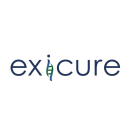
#20 – Exicure
NASDAQ:XCUR
Stock Price: $2.14 (-$0.04)
PE Ratio: -8.23
Market Cap: $191.75 million
Average Trading Volume: 664,059 shares
Consensus Rating: Buy (5 Buy Ratings, 0 Hold Ratings, 0 Sell Ratings)
Consensus Price Target: $9.60 (348.6% Upside)
Exicure, Inc., a clinical-stage biotechnology company, develops therapeutics for neurology, immuno-oncology, inflammatory diseases, and genetic disorders based on its proprietary spherical nucleic acid (SNA) technology. Its drug candidate includes AST-008 that is in a Phase 1b/2 clinical trials in patients with advanced solid tumors. The company is also developing XCUR-FXN, an SNAÂ-based therapeutic candidate that is in preclinical trials for the treatment of Friedreich’s ataxia; and XCUR17, an SNA that targets the messenger RNA (mRNA) encoding interleukin 17 receptor alpha. It has a collaboration, option, and license agreement with Allergan Pharmaceuticals International Limited to develop SNA-based treatments for hair loss disorders; and license and development agreement with DERMELIX, LLC to research, develop, and commercialize its technology for the treatment of netherton syndrome. The company was founded in 2011 and is based in Chicago, Illinois.

